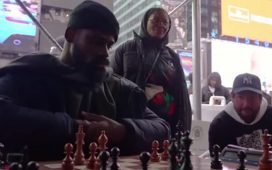
Some powerful Democrats in Congress want Justice Amy Coney Barrett to recuse herself from an … [+]
Getty Images
Next Monday the Supreme Court will be hearing an important case on freedom of speech and association. Some powerful Democrats don’t want Justice Amy Coney Barrett involved.
The case involves a challenge to a California law that requires non-profit educational organizations, called 503(c) (3) organizations, to disclose the names of their major donors to the State.
A conservative advocacy group called “Americans for Prosperity” is challenging the law before the Supreme Court. The Ninth Circuit Court of Appeals ruled against them and Americans for Prosperity sought an “en banc” review, which is when a larger panel of judges look at a decision made by a three judge panel. The Ninth Circuit rejected the request, but five circuit judges wrote a dissent.
The dissenting judges noted: “Although the state is required to keep donor names private, the district court found that the state’s promise of confidentiality was illusory; the state’s database was vulnerable to hacking and scores of donor names were repeatedly released to the public.” They also noted that the publications of the donor’s names led to serious harassment of the donors and their families: “supporters whose affiliation had previously been disclosed experienced harassment and abuse. Their names and addresses, and even the addresses of their children’s schools, were posted online along with threats of violence. Some donors’ businesses were boycotted. In one incident, a rally of the plaintiff’s supporters was stormed by assailants wielding knives and box cutters, who tore down the rally’s tent while the plaintiff’s supporters struggled to avoid being trapped beneath it.”
Two powerful Democratic Senators, Sheldon Whitehouse, and Richard Blumenthal, who are both members of the Senate Judiciary Committee, and Democratic Congressman Hank Johnson, want Justice Coney Barrett to recuse herself, which means that she would not vote on the case. They argue that because Americans for Prosperity spent heavily to advocate for her confirmation as a Supreme Court Justice, it would create an appearance of improper influence were she to participate in the case. In their letter to her, they wrote “Statute, constitutional case law, and common sense all would seem to require your recusal.”
Their position is directly contrary to what the Supreme Court has said about the impact of independent spending by wealthy groups. In Buckley v. Valeo, the Court held that while large direct donations to candidates might create an appearance of improper influence, independent spending on behalf of a candidate for office would not. In addition, Coney Barrett was never a candidate for anything—she was a nominee who is unlikely to seek another job for the rest of her life—so it is especially unlikely that she would be seen as beholden to a wealthy group that supported her nomination.
On the merits, this will be a close case with strong arguments on both sides. On the one hand, there has been a tremendous increase in the amount of money spent by the wealthy attempting to influence the political process. And while liberals, as well as conservatives, donate a lot of that money, there is a reasonable argument that the very wealthy have certain interests in common regardless of their political affiliation. Furthermore, educational institutions don’t have to disclose their donors and there is plenty of money spent by highly partisan advocacy groups in the guise of education and there is little enforcement of the rules distinguishing advocacy from education. So there is a great deal of money from anonymous, wealthy sources influencing American politics.
On the other hand, there is a strong tradition of anonymity in American political advocacy. The iconic Federalist Papers were written by Alexander Hamilton, James Madison, and John Jay, but they were published under the name “Publius”.
And unfortunately, the case for allowing anonymity has only gotten stronger. Threats against people, and even against their families, based on ideological differences have become commonplace. The prospect of having the address of ones’ children’s schools posted on the internet along with threats, as the dissenting judges said happened in this case, would make any person think twice about donating to a cause they believe in.
Recusal by a Supreme Court Justice is very rare. It usually only happens when a Justice has a personal financial interest in an entity before the Court or a personal relationship with a person involved in the case, or where the Justice was actually involved in some way in the case before it got to the Court. None of those things apply to the current situation. This is a challenging constitutional case and it deserves to be heard by a full Court. It is unlikely that Justice Coney Barrett will step aside.






